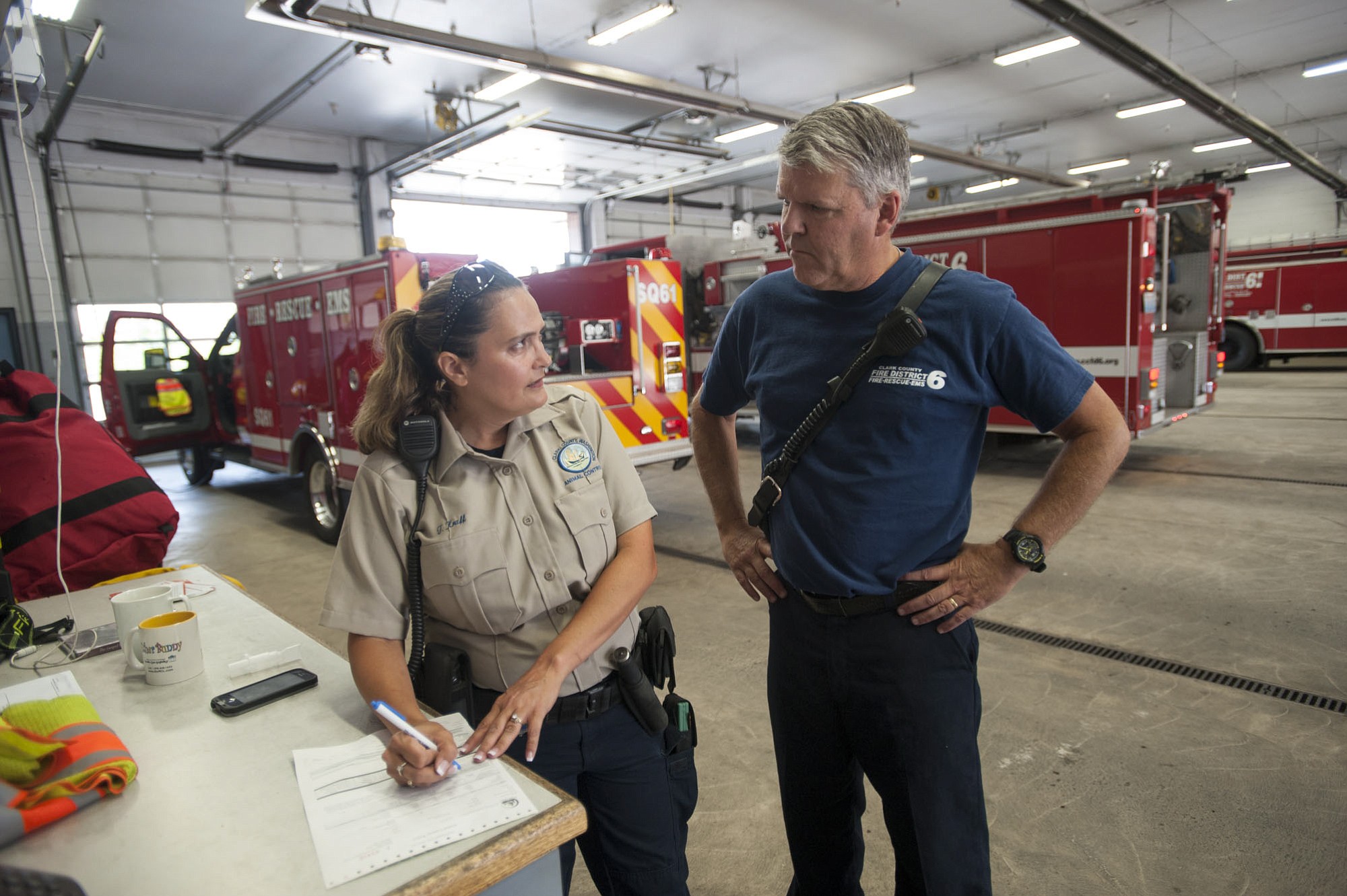Trisha Kraff’s morning on June 30 began with a complaint about someone selling black widow spiders and their babies on Facebook.
Kraff called the state Department of Agriculture, which referred her to the state veterinarian.
“It doesn’t sound right,” Kraff said, dialing the phone. “I don’t want to live in a house that raises black widow spiders — or live next door to one.”
It was just another day at work for Kraff, who’s seen her share of weird, horrific and sad things in her 11 years as a Clark County animal control officer.
Dull and repetitive her job is not. Every day, the dispatch center receives about 100 calls from angry, upset and excited people reporting all manner of animal-related incidents: dogs in hot cars, horses languishing with untreated medical conditions, cat hoarders, pets left behind when their families move, roadkill.




